Mobile app development
E-Commerce Solutions
Marketing strategies
UI/UX Design
Data analytics
AI tools
How Shopping Apps Boost Loyalty and Conversions
Nadiia Sidenko
2025-03-10
Mobile shopping apps have revolutionized the way consumers browse, shop, and make purchasing decisions. The explosive growth of mobile commerce trends has transformed retail apps into preferred shopping channels thanks to their intuitive navigation, streamlined checkout processes, and tailored shopping experiences. Compared to mobile websites, e-commerce applications deliver superior conversion rates, enhanced client loyalty, and a frictionless user journey.
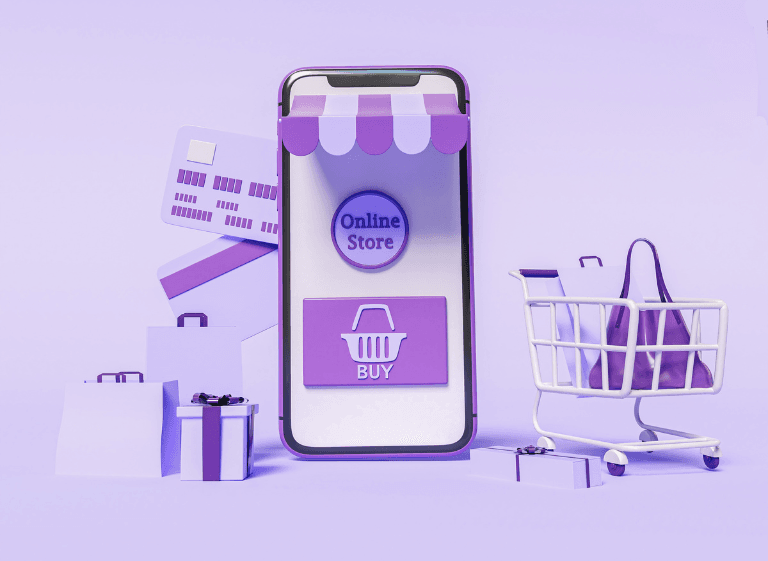
Ever wondered why leading brands invest so heavily in their mobile commerce solutions? Understanding how these digital retail platforms influence consumer behavior is essential for businesses looking to optimize engagement. This article explores AI-powered personalization, real-time alerts, social media integration, gamification, and interactive features—proven strategies that help businesses foster long-term user engagement and sustainable growth.
How Mobile Shopping Apps Influence Consumer Behavior
The Rise of Mobile Commerce and Its Impact on Shopping Habits
With smartphones becoming an indispensable part of daily life, mobile commerce (m-commerce) continues its remarkable growth. According to Statista, the number of mobile commerce users in the U.S. is projected to reach over 187 million by 2024, highlighting the dominance of mobile shopping experiences.
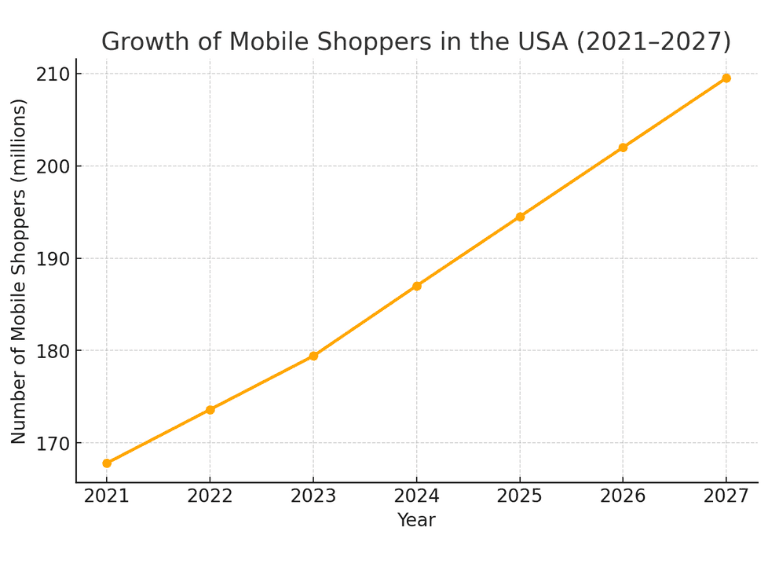
Today's shoppers increasingly gravitate toward shopping applications because they deliver lightning-fast transactions, personalized recommendations, and a more immersive user experience. Unlike mobile websites, e-commerce apps minimize friction in the purchasing journey by integrating features such as stored payment credentials, AI-powered search, and exclusive in-app promotions, culminating in a seamless checkout process.
Why Mobile Apps Have Higher Conversion Rates Than Mobile Websites
Retail applications consistently outperform browser-based shopping in conversion metrics due to their superior usability. Features such as mobile engagement messages, single-tap checkout, and AI-driven product suggestions make these platforms significantly more appealing to modern shoppers. Additionally, native apps load faster than mobile sites, dramatically reducing abandonment rates and enhancing user satisfaction.
Studies have shown that mobile apps convert up to three times higher than mobile websites, primarily due to their ability to offer a more seamless, personalized, and user-friendly shopping experience. Businesses leveraging behavioral analytics for mobile shopping can better decode customer preferences, resulting in deeper engagement and increased revenue streams.
| Metric | Mobile Website | Mobile App |
|---|---|---|
| Average Conversion Rate | 1.82% | 4.68% |
| Products Viewed per Session | 1x | 4.2x |
| Session Length | 2.5 minutes | 5 minutes |
| Shopping Cart Abandonment Rate | 73.4% | Lower |
| % of eCommerce Sales Contribution | 35% | 65% |
Key Insights:
- Conversion Rates: Mobile apps have a significantly higher average conversion rate (4.68%) compared to mobile websites (1.82%). (convertcart.com)
- User Engagement: Users view 4.2 times more products per session on mobile apps than on mobile websites, indicating higher engagement levels. (twinr.dev+1jmango360.com+1)
- Session Duration: The average session length on mobile apps is 5 minutes, whereas it's 2.5 minutes on mobile websites, suggesting that apps retain user attention longer. (meghtechnologies.com)
- Shopping Cart Abandonment: Mobile websites experience a higher shopping cart abandonment rate (73.4%) compared to mobile apps, which benefit from saved user data and streamlined checkout processes. (jmango360.com)
- Sales Contribution: Mobile apps contribute to 65% of eCommerce sales, whereas mobile websites account for 35%, highlighting the revenue potential of dedicated apps. (meghtechnologies.com)
This comparison underscores the advantages of mobile apps in delivering a seamless, personalized, and efficient shopping experience, leading to higher conversion rates and increased sales.
One key driver of this improved conversion rate is advanced site search functionality, which helps users find products faster. Research from Shopify suggests that shoppers who use in-app search convert at a rate nearly twice as high as those who don’t, underlining the importance of intuitive and responsive search features.
Key Factors That Drive Consumer Engagement in Mobile Apps
Personalization in Shopping Apps: AI-driven Recommendations
Today's consumers expect tailored shopping journeys, and AI-powered suggestions have become the foundation of mobile commerce. By analyzing user preferences, browsing patterns, and purchase history, retail apps can recommend highly relevant products in real time, increasing conversion rates and customer satisfaction. Many digital retail brands utilize enhanced eCommerce solutions to integrate AI-driven analytics and optimize their e-commerce performance.
How AI-driven Suggestions Boost User Engagement and Repeat Purchases
AI-powered personalization ensures that users encounter the most relevant product recommendations, strengthening customer retention and encouraging recurring transactions. Personalized shopping experiences drive increased loyalty and long-term customer engagement.
According to McKinsey & Company, businesses that implement AI-driven personalization can increase revenue by up to 30%, as consumers are more likely to make repeat purchases when they feel that the brand understands their preferences.
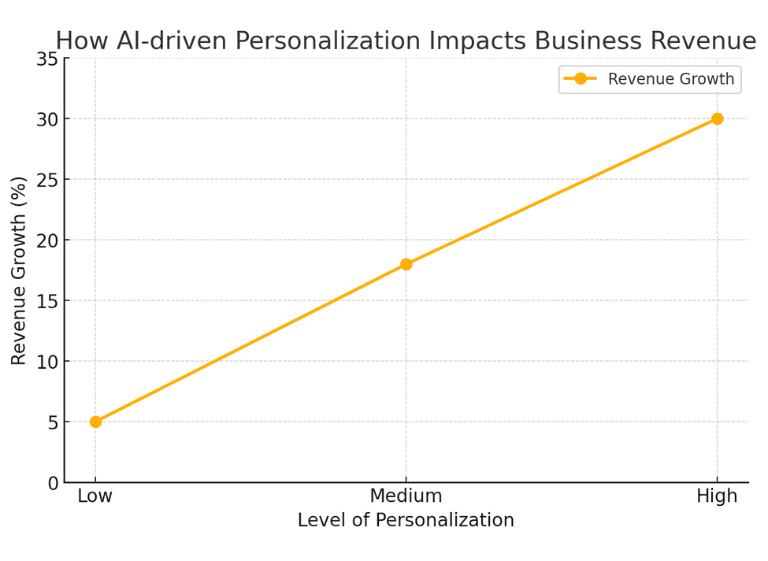
The graph illustrates the direct correlation between the level of AI-driven personalization and revenue growth. As businesses enhance personalization efforts, their revenue tends to increase significantly.
- Low Personalization (Basic Recommendations, Limited User Data): Companies that offer minimal personalization, such as generic product recommendations, see only a 5% revenue increase
- Medium Personalization (Behavior-based Suggestions, Customer Segmentation): Businesses implementing AI-driven behavioral tracking and tailored product recommendations experience an 18% rise in revenue
- High Personalization (AI-powered Predictive Analytics, Real-time Customization): Brands that leverage advanced AI models to deliver highly customized experiences, including predictive product suggestions and dynamic pricing, achieve up to 30% revenue growth, as reported by McKinsey & Company
Key Takeaway: The data underscores that the more personalized the shopping experience, the higher the likelihood of repeat purchases and increased customer spending. Investing in AI-powered personalization not only enhances user engagement but also leads to sustainable revenue growth.
The Role of Push Notifications in Keeping Customers Engaged
Push notifications have become a crucial communication tool for e-commerce brands, helping businesses retain customers, drive sales, and reduce cart abandonment rates. Unlike email marketing, real-time alerts provide instant engagement without requiring users to check their inbox. Companies that implement strategic notification strategies report higher app engagement rates and increased customer retention. Many retail platforms utilize mobile admin tools to efficiently manage push notification campaigns and customer interactions.
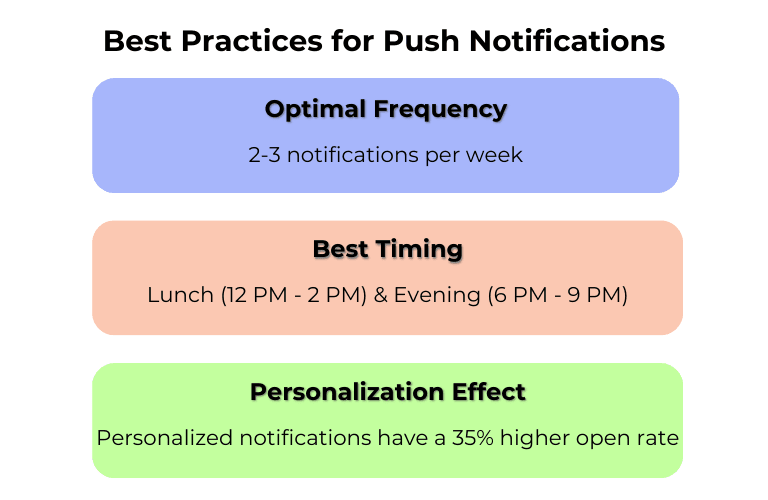
How Push Notifications Increase Engagement and Sales
Thoughtfully implemented push notifications can reactivate dormant users, promote personalized discounts, and encourage abandoned cart recovery. Businesses that personalize push messages see significant improvements in conversion rates and user engagement.
Push notifications have been shown to significantly increase mobile app engagement, making them one of the most effective tools for re-engaging customers and boosting retention rates.
How to Improve Customer Retention in Mobile Shopping Apps
Maintaining existing customer relationships is far more cost-effective than acquiring new ones. Forward-thinking businesses focus on loyalty-building strategies that enhance customer lifetime value and foster continued engagement. Many companies invest in SEO optimization for mobile shopping apps to increase discoverability and long-term retention.
Proven Retention Strategies Used by Leading Mobile Commerce Brands
- AI-driven personalization that evolves with customer preferences
- Strategic real-time alerts featuring relevant, timely offers
- Gamification elements and comprehensive loyalty initiatives
- Seamless social media integration and interactive content experiences
A study by Adobe found that returning customers spend 67% more than new customers, proving that a focus on customer retention drives long-term business success.
The Impact of Augmented Reality (AR) on Mobile Shopping
Interactive shopping experiences, such as augmented reality (AR), are transforming how consumers engage with e-commerce brands. According to Shopify, shoppers who interact with AR-powered product previews are 65% more likely to complete a purchase compared to those who don’t. By enabling virtual try-ons and 3D product visualizations, AR helps customers make more confident buying decisions while reducing return rates.
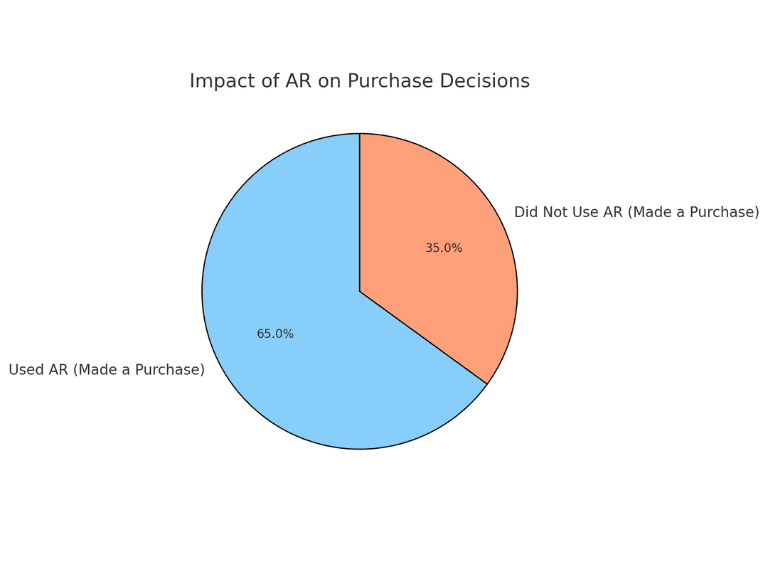
The circular chart illustrates how Augmented Reality (AR) influences shoppers' purchasing decisions.
- 65% of shoppers who used AR-powered product previews made a purchase, demonstrating that interactive experiences increase consumer confidence and engagement
- Only 35% of shoppers who did not use AR proceeded with a purchase, highlighting the lower conversion rate among users who lack access to immersive product visualization
Key Insight: The data underscores that integrating AR into mobile shopping apps significantly enhances the buying experience, leading to higher conversions and customer satisfaction. Businesses investing in AR technology can expect better engagement and increased sales performance.

Conclusion
The mobile commerce landscape continues evolving at an unprecedented pace. Is your business leveraging these powerful engagement strategies effectively? By implementing personalized experiences, strategic mobile alerts, social media integration, gamification, and interactive shopping journeys, retail brands can enhance user engagement and boost retention rates.
Take action now: Evaluate your current mobile commerce strategy against these industry best practices. Are you maximizing AI-driven personalization? Have you optimized your push notification strategy? Is your loyalty program driving measurable results? Brands that master these strategies consistently outperform their competitors in today’s digital-first e-commerce environment.
Remember, customer engagement is no longer optional—it’s the key to sustainable growth and long-term success.